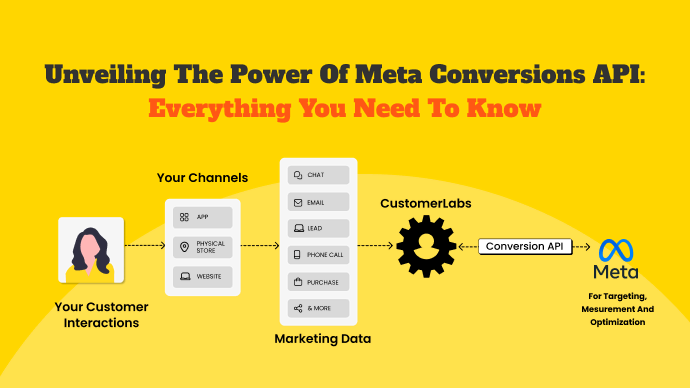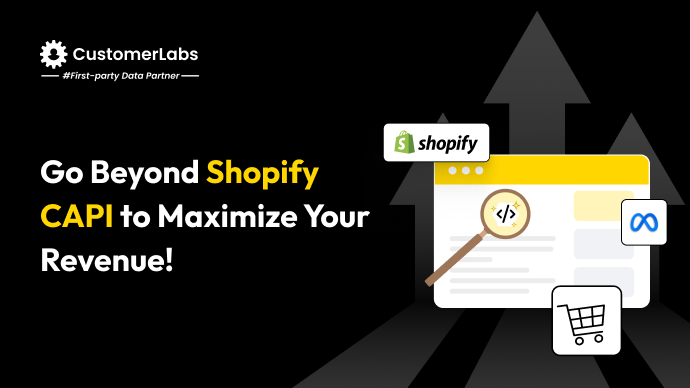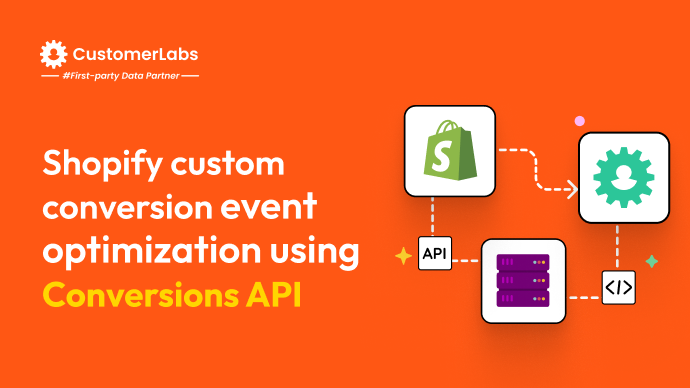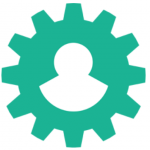Running ads for Shopify stores can be a task for a performance marketer like you if you are still relying on the default Shopify Conversions API (CAPI).
Still not clear, why I’m saying that? Yes, using Shopify Conversions API comes with a lot of limitations, some you might not even be aware of. But the most important of it all is tracking. To even think of running a successful ad campaign, you should have data that you can rely on; without that, it is more like dropping money inside a torn pocket.
To fix the hole, you need to have proper data, which is impossible with Shopify CAPI. In this blog, you will know what you are missing out on because of the Shopify CAPI limitations.
I’m not happy with leaving you hanging with just the problems. Keeping you in mind, I have also listed down the ways you can overcome it. If you stick till the end, you will also know how you can make your ads outperform and yield increased ROAS by being futuristic performance marketers in the industry.
Let’s get into it. We’ll start with the problems first, that is, the challenges of Shopify CAPI that you can be facing (you might not even realize some of them).
Before that, I will give a small explanation of what Shopify’s default CAPI is and its intended purpose.
Understanding Shopify’s Default Conversions API
Shopify’s Conversions API is a tool designed by Shopify specifically for advertisers. The entire purpose is to connect the Shopify store with Meta Ads.
By integrating Shopify Conversions API, you will be able to send user data, such as customer interactions and behavior, to the ad platforms.
However, Shopify’s CAPI only tracks default event data such as PageView, AddToCart, InitiateCheckout, and Purchase. These events get triggered when the customer interacts with your e-commerce store.
So, what generally happens is, you will use the data from Shopify CAPI to optimize the campaigns. You might even wonder what is wrong with that.
Disclaimer: I have nothing against Shopify; I just love it. But not its CAPI.
You are blind to the true potential of the campaigns and get restricted or stagnated with the data given by Shopify’s Conversions API. You will better understand this in the upcoming section, where we will be discussing the challenges of Shopify Conversions API.
Key Challenges of Shopify’s Default Conversions API
Absence of data control:
Shopify CAPI automatically sends predefined events like Purchase or Add to Cart to Meta. However, you won’t have visibility into the parameters sent for ad optimization. The same is true for offline conversion data, such as customer data in your CRM, which cannot be transferred to ad platforms via Shopify Conversions API because of the lack of tools integrating customer data.
This will leave you with incomplete insights into how ads are driving conversions, limiting your ability to refine targeting. Especially for healthcare brands on Shopify, this lack of control can lead to your custom events being blocked, further restricting data flow and hindering campaign optimization
Restricted with 28 days of event data:
Meta’s 28-day click attribution window limits Shopify CAPI from tracking events beyond this period. For instance, if a customer clicks your ad but purchases after 35 days, the sale won’t be attributed to the ad.
This restricts high-value audience signals, impacting campaign optimization and retargeting. Focus on strategies for shorter attribution windows or alternative data sources to bridge the gap.
Inability to activate anonymous audience:
Because Shopify’s Conversions API doesn’t have control over the data or parameters sent to ad platforms, it’s not possible to target anonymous users. For example, if a user browses your site without logging in, Shopify won’t send browser-side identifiers like fbp to Meta. Without this data, Meta can’t recognize or target these anonymous users for conversion tracking
No custom event reporting:
Shopify is a commerce platform for online stores, so basically tracking and reporting are not its game. It is not possible with the Shopify CAPI to attribute a conversion to the campaign for a specific product category. Default status events are tracked; hence, only default event data are automatically captured and reported.
Custom event optimization limitations:
The Shopify Conversions API restricts you to using the standard conversion events to optimize your ad campaigns. You will not be able to tailor your campaigns for particular product categories or unique user actions due to tracking limitations.
Lower Ad Performance (ROAS):
When your ad campaigns are not properly optimized with solid data, the results will take a serious hit by the end of the day. Even when your ad copies and creatives are exceptional, without training the ad platforms with high-quality data, it is not possible to reach higher conversions or revenue from the ad campaigns.
These limitations can be the real reasons why your campaigns are just shooting mediocre conversions. The next step to think about is how to overcome these challenges to increase your ad performance and ROAS.
Overcoming the challenges of Shopify Capi with Advanced CAPI
The solution is Meta’s Advanced Conversions API, a tool that facilitates the transmission of first-party user data to ad platforms from the server side. With Advanced CAPI, you can send more detailed customer data from the server side, and additionally, you can also send offline conversion data to the ad platforms. So let me point out how to break the limitations of Shopify Conversions API.
Control over data:
With Advanced CAPI, businesses have more control over the type and amount of data shared with advertising platforms. You can:
- Customize Data Transmission: Share specific customer attributes like purchase history, customer IDs, and loyalty status for better audience targeting.
- Enhanced Privacy Compliance: Manage and process customer data in compliance with privacy laws (e.g., GDPR, CCPA), ensuring you only share data for which consent has been obtained.
Break the 28-day window:
Shopify’s default CAPI follows the 28-day attribution window, which can be limiting for businesses with longer customer journeys. Advanced CAPI enables:
- Extended Attribution Tracking: Track and attribute conversions beyond 28 days, capturing the full customer lifecycle.
- More Comprehensive Insights: Gain visibility into delayed conversions, such as high-value purchases that take time to close.
Custom events reporting:
Shopify’s default CAPI tracks only predefined events like Purchase, Add to Cart, or Page View. Advanced CAPI unlocks the ability to:
- Track Custom Events: Measure specific interactions tailored to your business, such as product video views, form submissions, or wish-list additions.
- Create Detailed Analytics: Use custom event data to better understand user behavior and refine your marketing strategy.
Custom event optimization for Category Purchases:
Advanced CAPI allows you to optimize ads for specific product categories or customer actions:
- Category-Level Optimization: Track and optimize ads for specific categories, such as “Women’s Shoes” or “Electronics,” to improve ROI.
- Segmented Audiences: Send data about customer preferences at a granular level, enabling hyper-targeted campaigns.
- Improved Ad Relevance: Provide platforms with richer event data, ensuring that ad delivery algorithms show ads to the most relevant audience.
Advanced CAPI unlocks a new level of control, accuracy, and flexibility. Embracing Advanced CAPI will ensure you’re maximizing the potential of your marketing efforts while maintaining compliance with data privacy regulations.
Wait, I know you didn’t forget about what I said in the beginning. Now that we have resolved our current issues with Shopify Capi, let’s dive into some futuristic insights that can increase campaign revenue with smart marketing.
Plan the Marketing Future with 1PD Ops
You may have recently heard from all of the advertising platforms how important it is to use first-party data and how it can significantly improve your campaigns.

Now, I’m going to introduce you to an effective marketing platform: 1PD Ops.
So, what exactly is a 1PD Ops?
A 1PD ops (First-Party Data Operations) refers to collecting, managing, and utilizing first-party data—data collected directly from your own customers or audience. This data is gathered through interactions like website visits, app usage, purchases, email signups, and other direct engagements.
With 1PD ops like CustomerLabs, you can
- Data Collection: Seamlessly collect first-party data from websites, apps, CRMs, and other customer touchpoints without relying on third-party cookies.
- Data Unification: Combine fragmented data into a single customer view, providing a holistic understanding of user behavior and preferences.
- Activate Anonymous Users: Identify and target anonymous users by capturing browser-side identifiers like fbp and gaid, enabling personalized ad campaigns even for unlogged visitors.
- Data Control: Gain complete control over the data you collect, decide which parameters to send to platforms like Meta, and ensure compliance with privacy regulations.
- Attribution Tracking: Track conversions across extended windows, attributing offline and delayed conversions accurately to the original ad interactions.
- Custom Reporting: Generate detailed, custom reports to analyze customer journeys, optimize campaigns, and track ROI more effectively.
- Simple Integration: Easily integrate with platforms like Meta, Google Ads, CRMs and analytics tools to activate and leverage your first-party data for campaigns.
As marketers, if you are provided with solid data and features, I believe you can build strong strategies around it.
Here’s the evidence to prove the above statement. This brand ditched Shopify CAPI and started using 1PD ops combined with strategies. This happened…
Up next.
The Journey of Cookd with CustomerLabs 1PD Ops
Cookd faced a significant challenge with Shopify’s default tracking setup, where cookie expiration and limited data control led to inaccurate attribution and high Customer Acquisition Costs (CPP).
The problems with Shopify Conversions api:
- Limited cookie lifespan (7 days) caused inaccurate attribution.
- Lack of data control and inability to optimize for specific purchase events led to inefficiencies.
- High Customer Acquisition Costs (CPP) remained constant regardless of purchase value.
Shift to CustomerLabs 1PD Ops:
- Lifelong Cookie Tracking: Enabled precise attribution for returning users by retaining browser cookies indefinitely.
- Custom AOV-Based Conversion Events: Allowed Meta’s algorithm to focus on high-value customers, optimizing campaign performance.

- Enabled 1P domain Tracking: Browser cookies, i.e., all fbclid and gclid are collected and stored on the server. This helped in attribution and significantly lifted the ROAS.
And the results: Achieved a 35% increase in ROAS and a 45% decrease in CPP, driving better campaign efficiency and profitability.

This can happen to you as well.
Let’s Wrap it
If you’re still relying on Shopify’s default CAPI for your ad campaigns, you’re missing out on unlocking your campaigns’ true potential. The challenges of Shopify Conversions API—such as restricted event data, inability to track anonymous users, and lack of custom event optimization—can severely hinder your ad performance and ROI. However, by switching to Meta’s Advanced CAPI and incorporating First-Party Data Operations (1PD Ops) like CustomerLabs, you can break through these barriers and unlock enhanced data control, improved attribution tracking, and better audience segmentation.
The future of digital advertising is all about making data work harder for you, and with the right tools, you can ensure that your campaigns not only survive but thrive.
Do you wish to be that futuristic marketer? Book a demo now and take the next step







